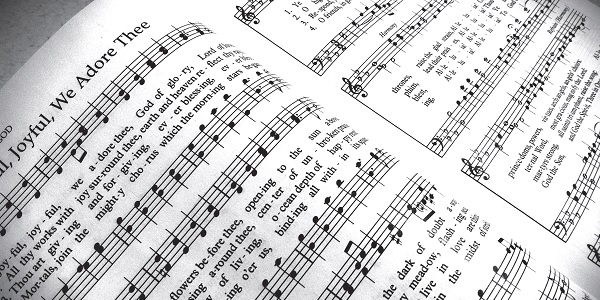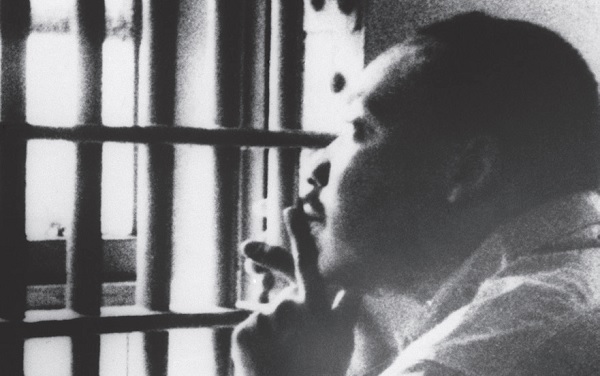Why generalize? But love sincerely!
[M generation’s pursuit of faith] 1
Translated by Lin Yu

▲Arranging worship music is a big enough challenge, but serving different people requires even more love and commitment. (Image source: http://timothytennent.com/files/2011/07/photo-12.jpg)
Poems are hard to choose, and people are even harder to understand
I serve as the leader of the worship team at Circle of Hope Church in Philadelphia. I design the Sunday service program for that week every four weeks, plan the worship process from beginning to end, and think deeply about the theme to be conveyed to the congregation that day. How to convey it so that people can accept it, including choosing the art form of poetry and music expression.
I bet anyone who leads worship feels the same way, that music is particularly challenging. We often use foreign language hymns to emphasize that the church is not limited to the here and now; we sing traditional hymns to emphasize the continuity of the church in history and please members who are accustomed to singing together; we also choose contemporary worship music to please those who have recently New believers who have just joined feel at ease. In addition, members’ improvisations are used almost every time to highlight the presence of God’s Spirit with us right now.
Every aspect of this can please some people and make some people unhappy. For example, we often discuss back and forth whether singing songs in foreign languages will be accused of cultural plagiarism, or simply because these songs have awkward pronunciation and are distracting to those who want worship to be a seamless connection with God. Also, I don’t particularly like most contemporary hymns because they are more suitable for worship in large stadiums but strike us as a small group of people as insincere. Although I am not the only one who thinks this way, there are still many people in the congregation who are familiar with these songs and feel that current popular hymns are the best way to connect with God. While exploring and exploring these issues, I also saw the need to arrange these songs in the worship process.
All of the above are just explained in a very detailed way, which is really difficult for people to understand. It’s a big enough challenge for us just to find common ground for worship music week after week. Age and generation don’t help much. The age group of my church is about 20 to 40 years old. The members come from very different theological backgrounds and bring many different theological conclusions. Being able to maintain regular meetings is enough. It was both surprising and awe-inspiring.
However, our church does meet every week. I also believe this is possible because of our commitment to love our neighbor as ourselves; and because we have decided that the best way to proclaim Jesus is through the incarnation, that is, through acts of love and personal relationships.
What is the unique thing that Millennials have in common?
Because of this, it is really difficult for me to refer to my experience as the overall experience of the "millennial generation" or to make assumptions about the millennial generation and then frame my experience within it. What is certain is that snippets of my personal story can resonate with the hearts of some people in their twenties and thirties who grew up in the church.
I was raised in an evangelical church and experienced many of the trends that evangelicals experienced in the 1990s. When I meet others who also grew up in evangelical churches, I am familiar with many of their experiences growing up, such as watching Veggie Tales and becoming obsessed with the Harry Potter novels. wary, or raised by parents who were die-hard supporters of Republican issues.
Of course, growing up in an evangelical church doesn’t fully define the millennial generation, just like being an evangelical doesn’t fully define who I am. Many experiences were unique to me. After I was twelve years old, my parents’ pastoral church transitioned into a “family church” model, so I never became a part of a youth ministry, nor did I participate in an Asian church. My parents mostly gave me the freedom to develop my own faith, allowing me to attend a mainstream Presbyterian church that was part of the Emerging Church movement. When my theology differed from my parents', they didn't force me to do it. I feel very lucky because there are very few friends with similar backgrounds like this.
My friends also dealt with their religious upbringing in unique ways. Some become Reformed, some no longer live a religious life, and some embrace wholeheartedly the tenets of conservative fundamentalism. Others, like my friend Jonathan Ho (the author of the next article echoing this article), try to find channels outside the traditional church system to spread their faith.
The variety of experiences is so vast that it is difficult to try to limit them to any simple, coherent summary, unless you intend to make only a rough summary. And I’m not sure if what I have trouble framing is just unique to the Millennial generation. While the baby boomers are responsible for rock music, the civil rights movement, and sexual openness, they are also responsible for Reaganomics. , emphasizing liberal economics.) and the role of the "Moral Majority" (Translation: the political establishment composed of conservative Christians in the United States from the late 1970s to the 1980s, promoting Christians to become a force that affects politics)?
I know some people would say that resisting labels is inherently something millennials do. This may be true, but it only strengthens my argument that there is no benefit in categorizing people unless they are described only in the broadest terms. That might be helpful in understanding demographics, pursuing fashion, and seeing how effects converge, which is, after all, how marketers and sociologists make a living.
I would even go so far as to say that understanding race, gender, age, and socioeconomic status is very important for Christians who are willing to be more aware of their social environment, to be alert to their own privileges and prejudices, and to resist systemic violence. important.
Greetings, not questionnaires
However, I am not entirely convinced that this way of understanding will ultimately help Christians meet people face to face in order to make disciples of Jesus. As Christians, we should strive to get to know people on the most individual level, rather than on the broadest level; to get close to them, rather than to become casual acquaintances. As a Christian, our core mission is to strive to know and love people. If we regard "categorizing people" as a shortcut to understanding and loving, we are deceiving ourselves. To get to know and love people, you need to practice being aware of and remove your preconceived notions about people, and make up your mind to get to know them on their own terms, without imposing predetermined labels on them. The first step is a "greeting", not a "questionnaire". Above all, cultivate self-sacrificing love.

▲Dr. King’s call to return to the spirit of sacrifice and dedication in the early church is a warning that churches today still need to remember. (Image source: http://explorepahistory.com/kora/files/1/2/1-2-F65-25-ExplorePAHistory-a0l3d7-a_349.jpg)
Dr. Martin Luther King Jr. expressed his heartfelt words in his "Letter from a Birmingham Jail":
If today's church cannot regain the spirit of sacrifice and devotion of the early church, it will lose its authenticity, lose the loyalty of millions of people, and will be regarded as an insignificant social club, meaningless to the 20th century. The young people I meet every day have gone from being disillusioned with the church to being turned off by the church.
Dr. King wrote this passage in 1963. I deeply believe that his words are true even today. There are no shortcuts to the problems the church faces today. The solution is the same as it was in 1963 when he uttered these words, and the same solution that Jesus offered before His death - love one another as He loves us.
 Author profile Yang Junan, a millennial, a professional lawyer, graduated from Temple University Law School in Philadelphia in 2014. Currently working at a law firm in Philadelphia, where she mainly handles social security benefit and disability benefit appeals. Participate in worship team service at Circle of Hope Church.
Author profile Yang Junan, a millennial, a professional lawyer, graduated from Temple University Law School in Philadelphia in 2014. Currently working at a law firm in Philadelphia, where she mainly handles social security benefit and disability benefit appeals. Participate in worship team service at Circle of Hope Church.
